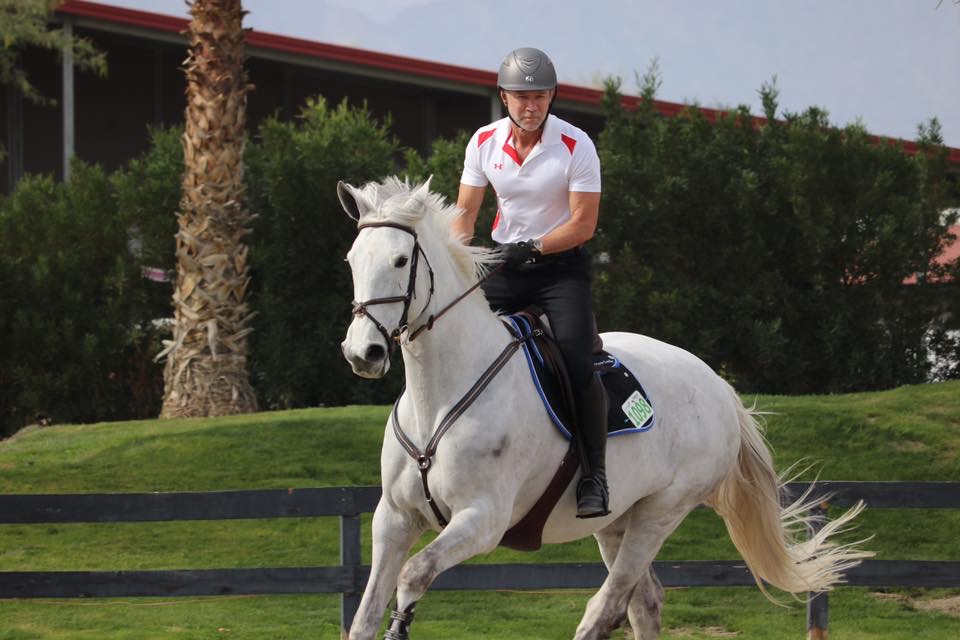
Dr. Jeffrey Leake and Carey, his 100 Meter Amateur Equestrian Champion.
“Your body is a temple”.
That’s what my mother always told me. I’m not quite sure exactly what she meant because she never would elaborate. I think she meant that you need to take care of your physical being…the vessel that carries around your soul in this life.
I suspect that she was traumatized by the death of her father from untreated hypertensive kidney disease when she was a teen. At any rate, I took her advice to heart.
I grew up as a post war baby boomer in neighborhoods filled with kids my own age. We were active and outdoors constantly. Sports were a big part of my life, starting with sandlot baseball and proceeding to little league, flag football and finally varsity high school sports. I was captain of the football and lacrosse teams in high school and went on to play varsity lacrosse at Ohio State University.
Compared to today, the training methods were rather primitive, but I participated in weight training as an adjunct to our sport specific drills and have continued some form of resistance training to this day.
Finding my Calling
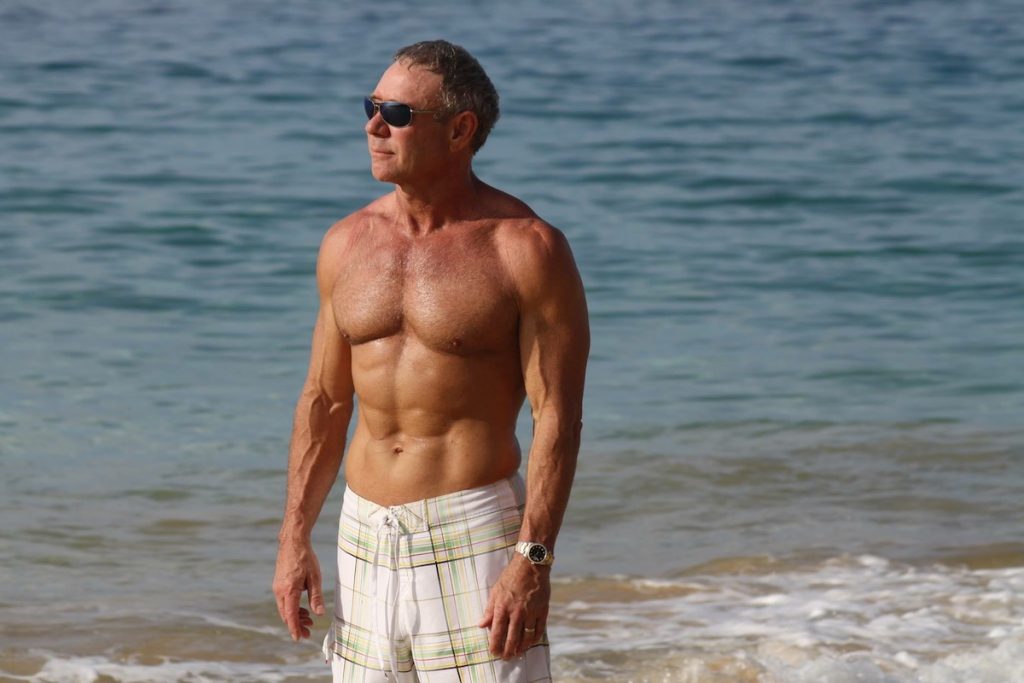
In graduate school, I studied Physiological Chemistry. Bodybuilding as a sport was becoming more popular in the seventies and I took an interest in body composition manipulation through diet and exercise interventions. It fit nicely with my background in physiology. When entering medical school, I could not continue playing club lacrosse. My activity consisted of running around the wards all day, so when I graduated from my anesthesiology residency, I was not happy with my overall fitness. I decided at that time that despite my busy schedule, I would always find time for my fitness program. I joined a busy, high-risk anesthesiology practice in the Pacific Northwest.
Though no longer engaged in competitive sports, I spent my free time skiing, mountain biking and hiking. Weekly hours in the operating theater frequently approached one hundred. It was physically taxing even though I was in great shape.
One day in the surgeon’s lounge I was engaged in a conversation with one of my colleagues, an urologist who was telling me about a small group of patients he was treating with testosterone. While still feeling overall fit and healthy, I did mentioned that each year it was harder and harder to keep up with the pace of the practice. He offered to do a trial of testosterone therapy and I gladly accepted. It was old school style, taking a larger dose every several weeks but I immediately noticed and increase in my energy and sense of well-being. It appeared I was able to tolerate the long hours better and I definitely noticed an improved response to and recovery from my workouts.
Life Altering Events
Several years later something happened that eventually altered the course of my career. I remember vividly walking into the recovery room on my way to see my first patient of the day. There was a sudden onset of a headache, that seeming appeared out of nowhere. Though quite severe, I passed it off as a sinus headache and continued about my business. I asked my family doctor to give me a look. I appeared to be fine, save for the contention that “If I had a sharp knife, I would cut my head off!” We did a CAT scan, which was normal. We joked, “At least I don’t have a brain tumor!” and figured we would just ride it out. Over the next few days, the headache continued. It was of such a ferocious intensity that I finally succumbed to the idea that something more serious must be going on. I finally went to the emergency room. It was September 11, 2001.
After blood work, a spinal tap and two MRI’s, a diagnosis was confirmed. I had Pituitary Apoplexy. This is a rare condition where the pituitary gland is destroyed because the blood supply is compromised. It frequently is due to a benign adenoma (tumor) of the gland. These tumors can go undiagnosed or cause problems due to hormone imbalances or rarely, present as infraction as mine did.
Within a week the headache subsided as the blood was cleared from around my brain. I had a consultation with an endocrinologist. We ran some tests and confirmed I had enough residual gland to avoid a crisis due to lack of cortisol and thyroid. However, these tumors routinely cause deficiencies in the gonadotropins (leading to testosterone deficiency) and growth hormone.
I had been on testosterone therapy already (the deficiency most likely caused by the tumor) and was otherwise quite fit and healthy due to my commitment to a quality diet and vigorous exercise.
So, I was sent on my way. I saw a neurosurgeon and underwent yearly MRI’s to make sure the tumor didn’t recur.
I wasn’t satisfied with just being “okay” or healthier than most forty seven year olds are. I wanted to be optimal, particularly given the rigors of my work schedule. Without any real options, I went back to my regular training. I had the misfortune of rupturing a thoracic disc, which required surgery. I was limited in my exercise for about six months. I didn’t feel like myself, was struggling to get back on track despite the fact that I was a Certified Personal Trainer, and was well versed in the science of nutrition and exercise.
Discovering Optimized Health with Cenegenics
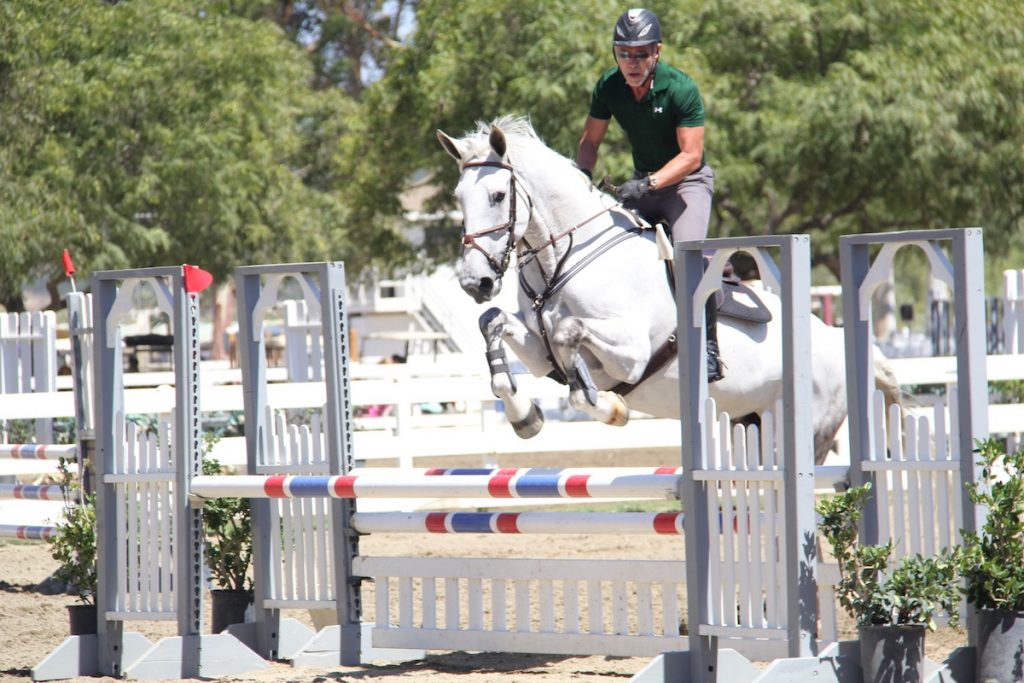
I remembered seeing an ad for Cenegenics in the National Review. It was just a picture of a man about my age, standing next to his bicycle. He was lean and fit. I thought to myself, “That looks like me”.
I called the clinic and booked an appointment. I wanted to know how they would approach someone like me. Someone that wasn’t looking for “just okay”.
I was impressed with the objective nature of the evaluation. For years, I had tracked my body fat percentage with skin calipers but was impressed with the precision of the DEXA scan. It showed me regional measurements of body fat and muscle, and gave me a measurement of my bone mineral density.
The fitness assessment was comprehensive and I loved the measurement of my VO2. This is my favorite diagnostic test that I preform on my patients. You might have seen pictures of professional and Olympic athletes taking this test. It not only is a great predictor of all-cause mortality, we can take the information obtained in the test and design a patient specific aerobic training program.
They assessed with the Carotid Ultrasound and they even tested my Cognitive function.
Despite being well versed in the science of lifestyle medicine, I decided to join the program. I appreciated the objective nature of their approach and was impressed with the professionalism of the staff. I felt like everyone I met was like me and I wanted to be a part of that.
One of the benefits of the program is that you don’t have to do it alone. Everyone, even knowledgeable people, need a coach. It is great to be a part of a team.
Several months later, I returned to participate in a continuing education program on Age Management Medicine given by the clinic. I fell in love with the science and was offered an opportunity to try to start a practice in the Pacific Northwest. With my insane schedule, I couldn’t quite figure out how to make it happen so I figured I would just use the training to enhance my own knowledge.
Quite by accident, I discovered that Cenegenics was looking for a physician to join the Las Vegas Clinic. I arranged an interview and after meeting with the executive team, took the job that day. I returned home and retired from the only practice I had known for the past twenty-seven years. Despite being a bit of a career risk, I went all in and moved to Las Vegas. It turned out better than I could have ever imagined. I love my practice and spending my time working with my patients to improve their health and wellness.
I wrote the Textbook in Age Management Medicine
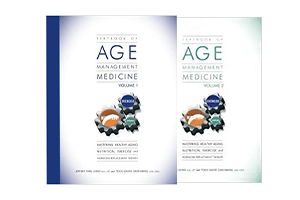
I got the opportunity to become Director of Education for the clinic. Over the last decade, I have developed our Training Program for physicians and had the pleasure of teaching over one thousand physicians our approach to health and wellness. With the aid of one of my students, I authored the Textbook of Age Management Medicine, Volumes 1 and 2, a comprehensive reference with over 3500 literature citations and the first text of its kind.
I am proud of our approach that uses the best available research to combine quality nutritional and exercise recommendations to prevent and reverse disease. We apply innovative diagnostic studies to assess and manage risk at the earliest stage when therapeutic interventions are much more potent and effective.
We are constantly striving to grow our knowledge base and innovate in order to further our understanding of preventative health strategies. I appreciate this not only as a practicing physician, but as a patient as well.
This article was written and contributed to Jetset Magazine by Dr. Jeffrey Leake.
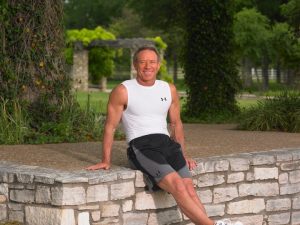 After completing his board certification in anesthesiology, Dr. Leake spent 27 years as a practicing anesthesiologist at Harrison Medical Center in Washington, becoming the first Director of Surgical Services there. In 2009, Dr. Leake transitioned from a career in anesthesiology to join Cenegenics® as a clinical physician in age management. His interest in exercise and fitness developed naturally from his athletic career while at OSU. He received certification by the International Sports Sciences Association as a personal trainer and by Precision Nutrition as a PN1 Certified Nutrition Specialist. His personal fitness regime includes weight training, plyometrics, yoga, sprint interval training, equestrian sports and Krav Maga. He is a member of the Endocrine Society and International Menopause Society.
After completing his board certification in anesthesiology, Dr. Leake spent 27 years as a practicing anesthesiologist at Harrison Medical Center in Washington, becoming the first Director of Surgical Services there. In 2009, Dr. Leake transitioned from a career in anesthesiology to join Cenegenics® as a clinical physician in age management. His interest in exercise and fitness developed naturally from his athletic career while at OSU. He received certification by the International Sports Sciences Association as a personal trainer and by Precision Nutrition as a PN1 Certified Nutrition Specialist. His personal fitness regime includes weight training, plyometrics, yoga, sprint interval training, equestrian sports and Krav Maga. He is a member of the Endocrine Society and International Menopause Society.
Jeffrey Park Leake, M.D., is a senior physician in clinical practice at Cenegenics® Elite Health in Las Vegas, Nevada, where he specializes in age management medicine and serves as Director of Education for the Cenegenics® Education & Research Foundation. He has trained over 1,000 physicians worldwide in Age Management Medicine and is the author of the Textbook of Age Management Medicine Vol I & II, a comprehensive reference with over 3500 literature citations.
If you are interested in the Cenegenics program, you may contact Dr. Jeffrey Leake directly at 888.412.8841 or visit www.cenegenics.com.

